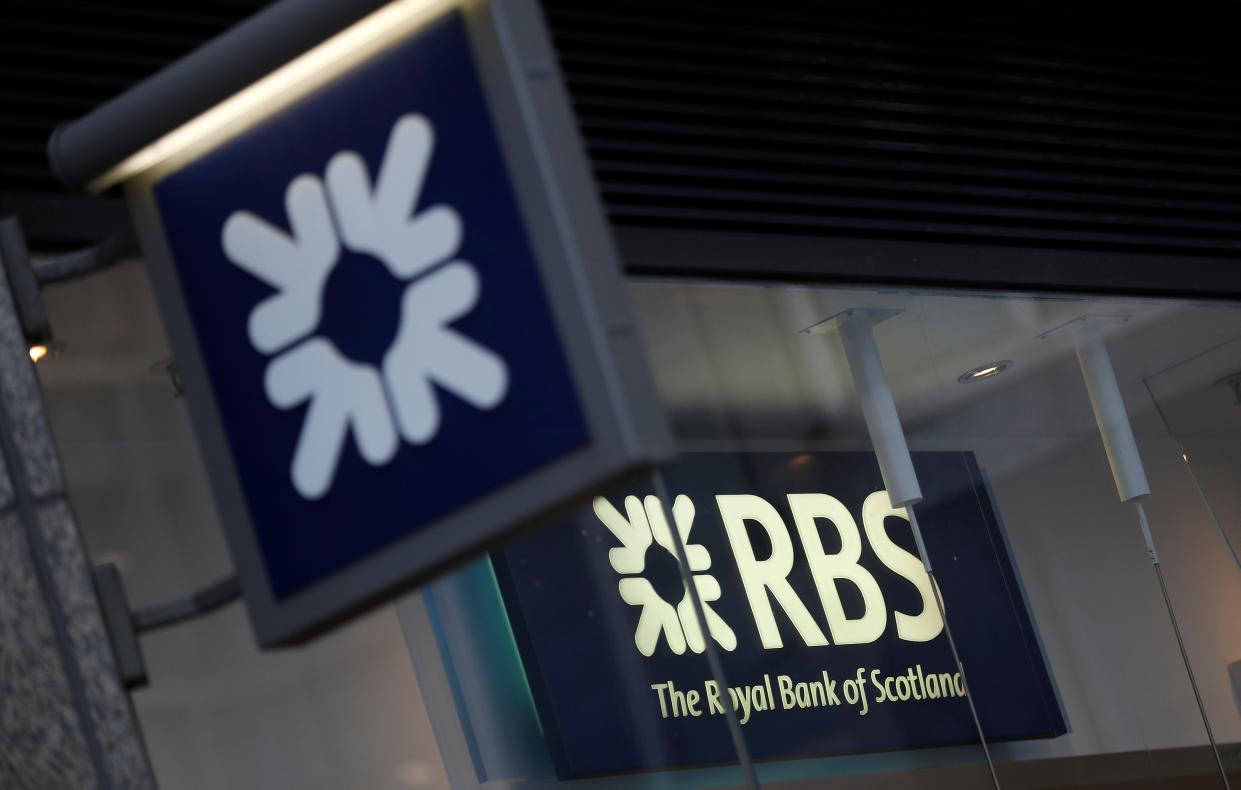Profits surge 48% at RBS, but bank warns of Brexit uncertainty

Royal Bank of Scotland Group (RBS.L) on Friday said that pre-tax profits in the first half of the year climbed 48% to £2.7bn compared to the same period last year.
The state-owned banking group also announced a larger-than-expected dividend of £1.7bn and affirmed its forecasts for 2019, while warning that market conditions — including economic and political uncertainty — mean that it is “very unlikely” that it will achieve its targets in 2020.
The figure, considerably above market expectations of £2.3bn, was largely driven by a 63% surge in second-quarter profits thanks to £718m gained from the sale of its shares in Saudia bank Alwawal.
Revenue, however, fell by 1.7% compared to the first half of 2018.
The bank said that large corporate firms were continuing to delay financing as a result of Brexit uncertainty, but noted that lending in its commercial banking division grew by £1.5bn.
At £2bn, revenue from lending in the second quarter was 10% lower than in the same period last year, and around £100m lower than analysts had forecast.
The bank’s closely watched ratio between cost and income was 57% in the first half of the year, a significant improvement on the 70% seen last year.
But the bank was not optimistic about the extent of further reductions in 2020.
“Given current market conditions, continued economic and political uncertainty and the contraction of the yield curve,” the bank said, “it is very unlikely that we will achieve our target return on tangible equity of more than 12% and cost:income ratio of less than 50% in 2020.”
“These remain our strategic targets and we believe they are achievable in the medium term.”
Net loans to customers increased by 2.5% in the first half of the year, meaning that it gave out £283bn to customers, while RBS achieved cost reductions of £173m in the same period.
As part of its cost-cutting drive, the bank is due to leave its current headquarters in the City of London for another on the same street.
“This is a solid set of results in challenging market conditions, said CEO Ross McEwan on Friday.
“Given the uncertain and competitive environment, we are focused on the areas we can control: costs are down, capital and liquidity are strong and we continue to grow lending to the real economy.”
Investors had also been hoping for an update on the successor to McEwan, who is due to step down in April 2020 to lead National Australia Bank. None was given.
Ian Stuart, the head of HSBC UK, is reportedly in the running to replace McEwan, as is Alison Rose, the deputy head of NatWest Holdings, the parent company of RBS retail banks, which also includes Ulster Bank and NatWest.
Meanwhile, RBS is one of five banks being sued by investors for at least £1bn after the European Commission in May found that they had engaged in rigging of the foreign exchange market.
US law firm Scott + Scott, which specialises in stock market litigation, has taken the claim to the UK Competition Appeal Tribunal.


